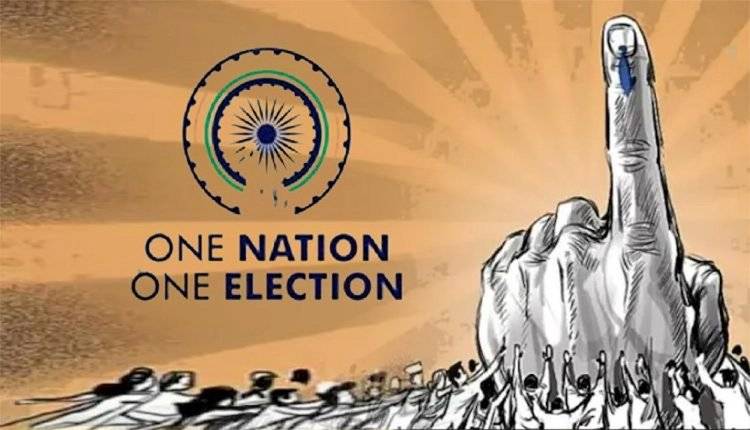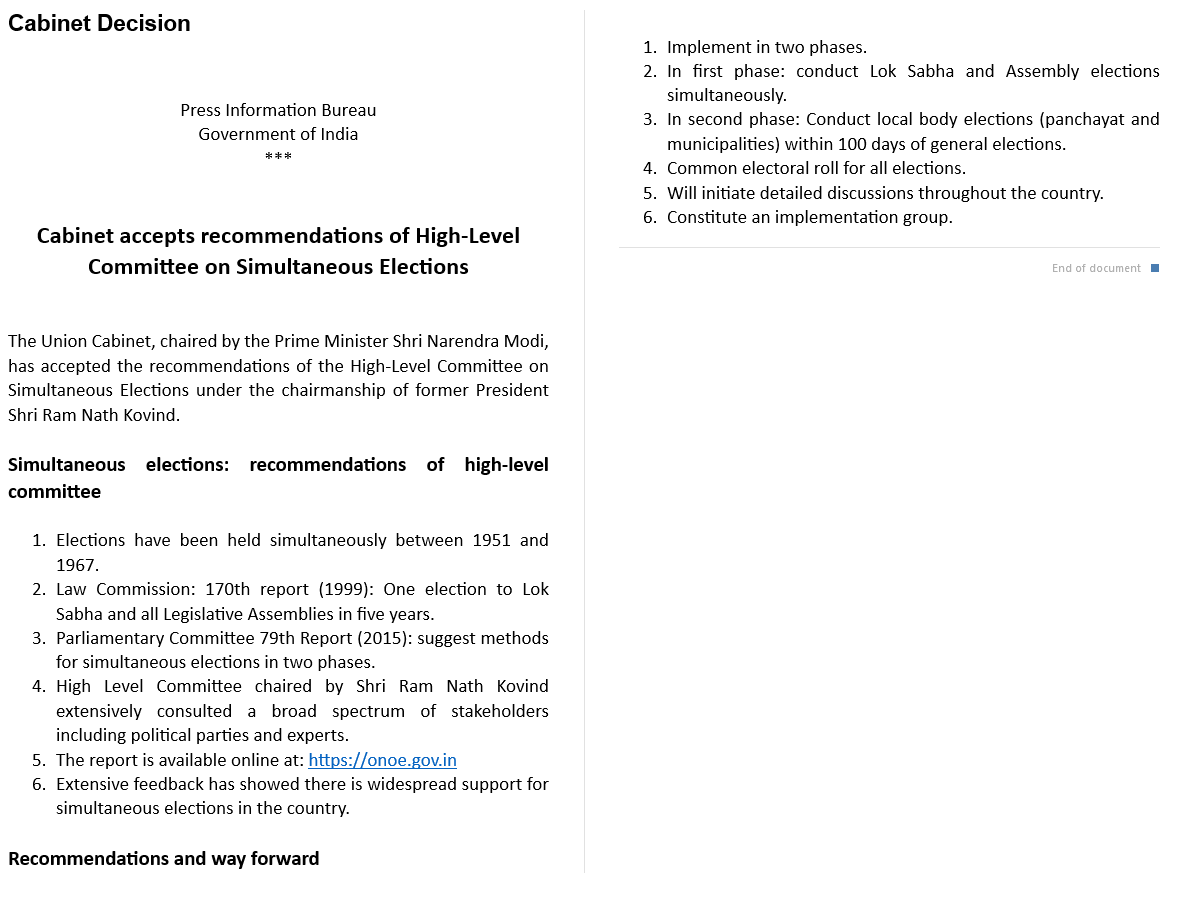![]()

In a significant move, the Union Cabinet, led by Prime Minister Narendra Modi, has accepted the recommendations of the High-Level Committee on Simultaneous Elections, chaired by former President Shri Ram Nath Kovind. The committee’s report, which outlines a roadmap for conducting simultaneous elections across the country, aims to streamline the electoral process and reduce the frequency of polls.
The concept of simultaneous elections, practiced between 1951 and 1967, seeks to synchronize elections for the Lok Sabha and all State Legislative Assemblies in one cycle. After extensive consultations with political parties, experts, and stakeholders, the High-Level Committee has recommended the implementation of this initiative in two phases.
Home Minister Amit Shah hailed the move in a tweet, emphasizing the significance of the reform:
“Under the leadership of PM Shri @narendramodi Ji, Bharat has been witnessing transformative reforms. Today, in this direction, Bharat takes a giant stride towards landmark electoral reforms with the Union Cabinet accepting the recommendations of the High-Level Committee on One Nation One Election.”
Under the leadership of PM Shri @narendramodi Ji, Bharat has been witnessing transformative reforms. Today, in this direction, Bharat takes a giant stride towards landmark electoral reforms with the Union Cabinet accepting the recommendations of the High-Level Committee on One…
— Amit Shah (@AmitShah) September 18, 2024
“Shah further praised the initiative as a testament to Modi’s vision for cleaner, more financially efficient elections, remarking that it would help accelerate economic growth through more productive allocation of resources.”
Key Recommendations:
1) Two-Phase Implementation:
- Phase 1: Conduct simultaneous Lok Sabha and Assembly elections.
- Phase 2: Conduct local body elections (panchayat and municipalities) within 100 days of the general elections.
2) Common Electoral Roll: A single electoral roll will be used for all elections to ensure efficiency.
3) Nationwide Discussions: The government will initiate detailed discussions with stakeholders to ensure widespread participation and consensus.
Next Steps:
An implementation group will be constituted to oversee the rollout of the recommendations. The government has indicated that there is strong public support for the initiative, which is expected to streamline governance and reduce the economic and administrative burden caused by staggered elections.
For more details, the full report is available online at onoe.gov.in.

